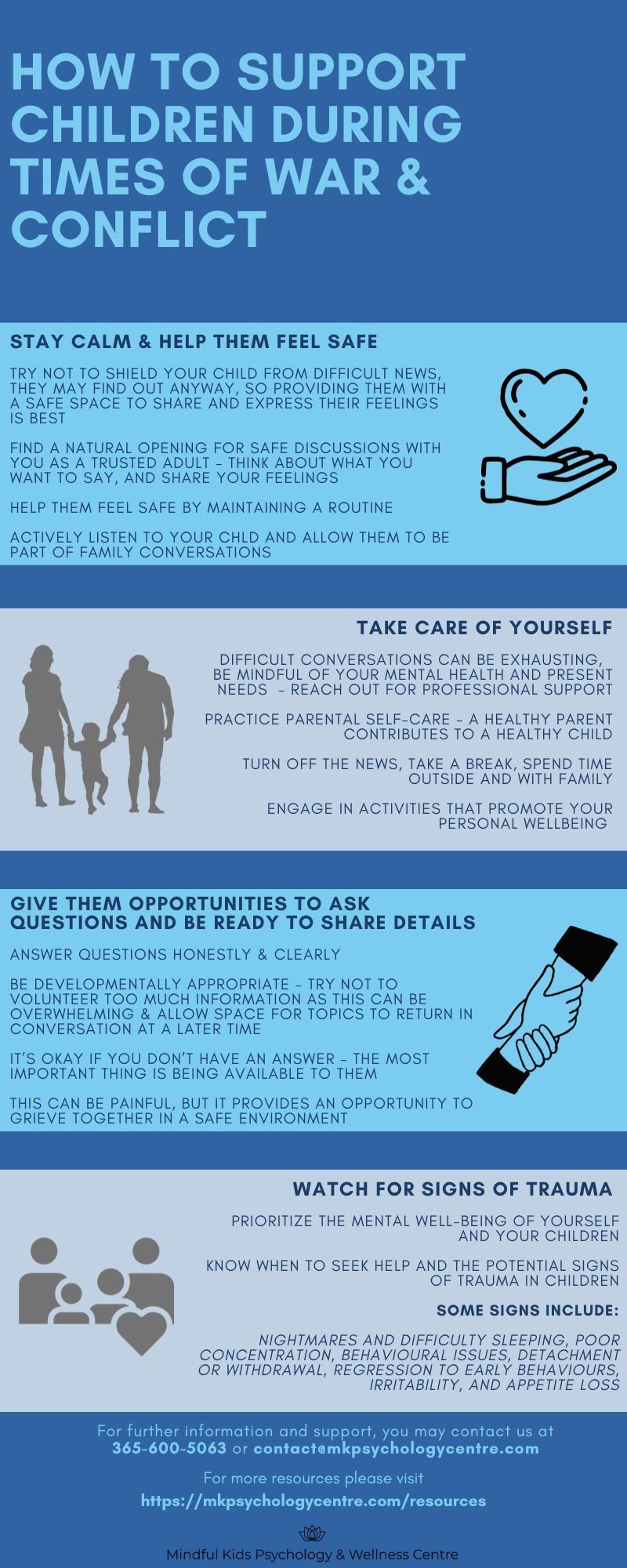Supporting children and youth during times of war and conflict
By Dr. Marina Heifetz, C.Psych
Mahatma Gandhi said “If we are to teach real peace in this world, and if we are to carry on a real war against war, we shall have to begin with the children.” Education and discussion of the “hard topics” plays an important role in children’s development and understanding of the world and, ultimately, paving our path toward peace. At the same time, it is tempting, or rather desirable, to shield children from these topics. Yet, we live in a world where news travels much more quickly and widely than ever before, which suggests that if we don’t have these tough conversations, our children may learn elsewhere. Scary topics, such as tragedies, natural disasters, or discrimination, can happen to all of us. Below are some ways to guide these tough conversations.
Sharing feelings: Sharing your own feelings about the situation while also actively listening to your child/ youth is a key part of this process. It is helpful, as a parent, to acknowledge your feelings and for them to see that it is normal to experience these difficult emotions. This is also an opportunity for parents to model how we cope with our difficult feelings. Validating your child’s feelings, whatever they may be, is important. There is no right or wrong way to feel here, although this exploration may also reveal some confusion or misunderstandings of what may be happening, which allows for opportunities to explore the situation from a developmentally appropriate perspective.
Carve out a good time and place to talk: A developmentally appropriate perspective in mind is important when discussing what may be happening in the world. This may mean that with younger children we emphasize safety and age-appropriate tips for staying safe, if needed. This also means that we provide opportunities to explore questions and answer these honestly and clearly. What happens if we don’t have all the answers? We don’t have to have all the answers because we are there to help validate the child while reassuring them that we are doing everything we can to stay safe. Limiting access to social media may be a very helpful way to ensure that the child/ youth is obtaining accurate information and allows families to explore things at their own pace.
The news can be hard to convey, Common Sense Media has some good resources and tips on this discussion.
Model calm and practice your own self-care. During challenging times, things can feel overwhelming and heavy. It is important for us all to take time to turn off the news, unplug, and take a break. Spending time together outdoors and engaging in activities that promote our personal wellbeing can be a helpful way for us all to find the calm space for ourselves and to respond calmly to our children.
Reading books can be a helpful way to explore these hard topics further. Magination Press has numerous books available on various topics, including grief, trauma, and war. My previous article also highlighted some helpful books on topics of mindfulness and emotion exploration.



